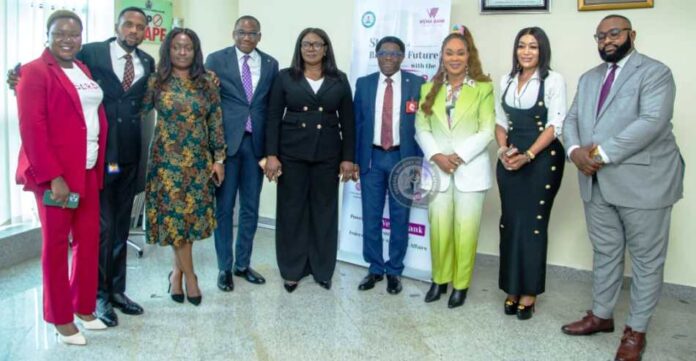By Aaior K. Comfort
The Federal Government, through the Ministry of Women Affairs, has announced a strategic partnership with WEMA Bank Plc aimed at implementing empowerment programs for 500,000 women across Nigeria’s six geopolitical zones. This initiative, revealed in a statement by Mrs. Grace Njoku, the Ministry’s Head of Information and Public Relations, is designed to combat poverty, unemployment, and inequality.
Part of President Bola Tinubu’s “Renewed Hope Agenda,” the initiative will focus on skill acquisition, agriculture, and providing grants and loans to women. Barr. Uju Kennedy-Ohanenye, the Minister of Women Affairs, highlighted the importance of this project in driving national development through the economic empowerment of women, who represent a significant portion of Nigeria’s population.
In her remarks, the minister stressed the critical role women play in addressing societal issues such as early marriages, domestic violence, and poverty. “With women and children comprising 70% of Nigeria’s population, empowering them through skill acquisition, access to grants and loans, and business tools will yield significant positive results,” she stated.
The Ministry is committed to creating an enabling environment for women’s empowerment, particularly at the grassroots level, focusing on sectors like farming, food processing, and tailoring. “This approach can reduce out-of-school dropouts, sexual and gender-based violence, and early marriages, allowing women to earn, make profits, and contribute meaningfully to the growth and development of their families and the nation,” she added.
WEMA Bank, under the leadership of Managing Director Moruf Oseni, has pledged its support for women-focused initiatives as part of its Corporate Social Responsibility (CSR). Oseni, represented by Tunde Mabawonku, Executive Director of Retail and Digital, emphasized the bank’s readiness to collaborate with the Ministry through the MOWA-SARA accelerator program.
He assured that WEMA Bank will allocate a portion of its CSR efforts towards enhancing the economic status of Nigerian women through cluster arrangements for empowerment across the states.

